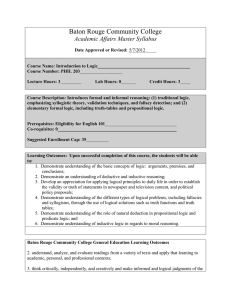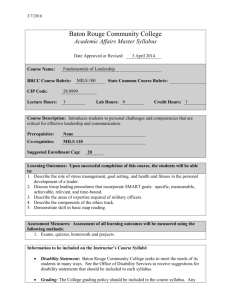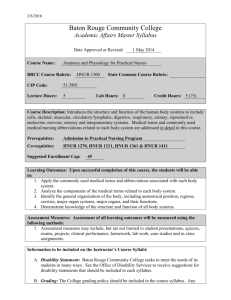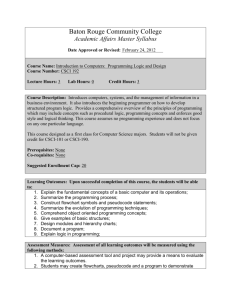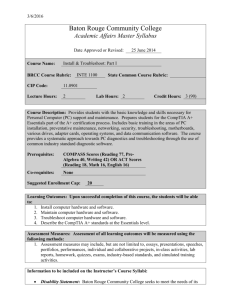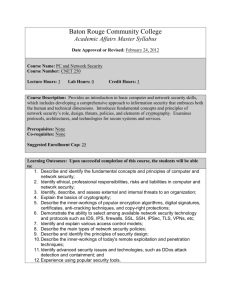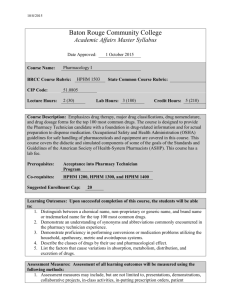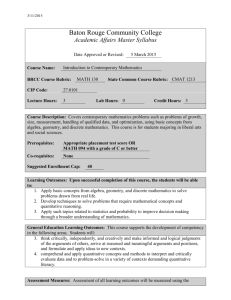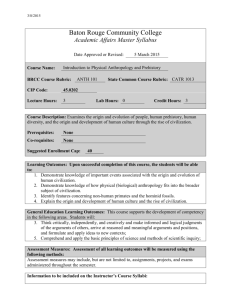PHIL 228 - Baton Rouge Community College
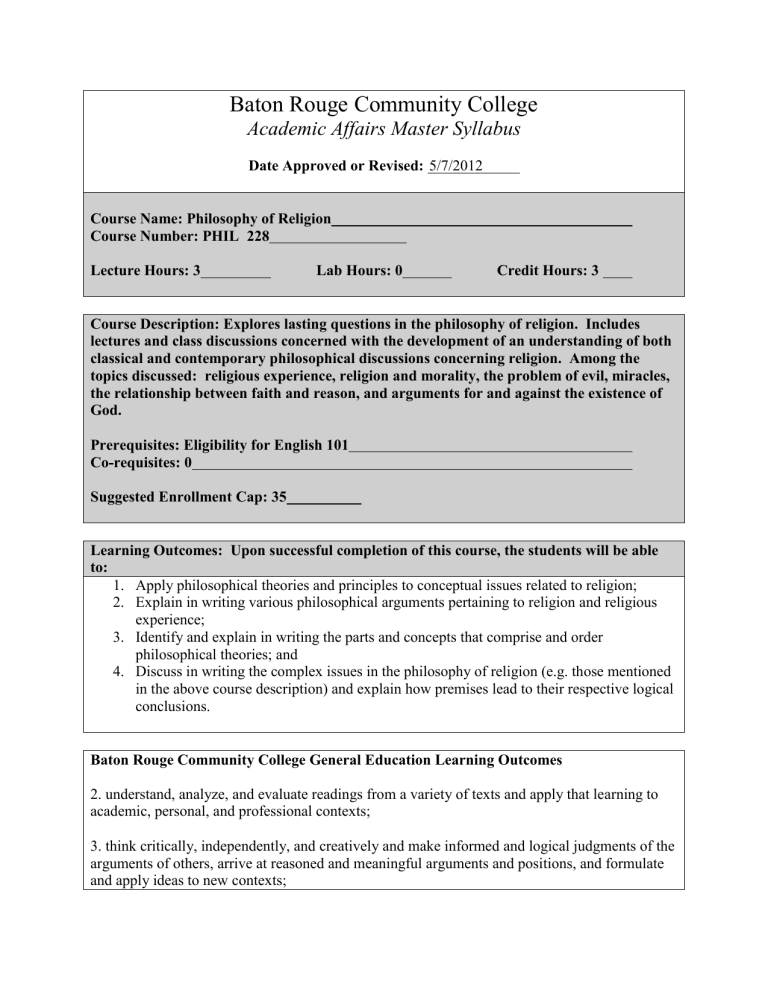
Baton Rouge Community College
Academic Affairs Master Syllabus
Date Approved or Revised: 5/7/2012
Course Name: Philosophy of Religion
Course Number: PHIL 228
Lecture Hours: 3 Lab Hours: 0 Credit Hours: 3
Course Description: Explores lasting questions in the philosophy of religion. Includes lectures and class discussions concerned with the development of an understanding of both classical and contemporary philosophical discussions concerning religion. Among the topics discussed: religious experience, religion and morality, the problem of evil, miracles, the relationship between faith and reason, and arguments for and against the existence of
God.
Prerequisites: Eligibility for English 101
Co-requisites: 0
Suggested Enrollment Cap: 35
Learning Outcomes: Upon successful completion of this course, the students will be able to:
1.
Apply philosophical theories and principles to conceptual issues related to religion;
2.
Explain in writing various philosophical arguments pertaining to religion and religious experience;
3.
Identify and explain in writing the parts and concepts that comprise and order philosophical theories; and
4.
Discuss in writing the complex issues in the philosophy of religion (e.g. those mentioned in the above course description) and explain how premises lead to their respective logical conclusions.
Baton Rouge Community College General Education Learning Outcomes
2. understand, analyze, and evaluate readings from a variety of texts and apply that learning to academic, personal, and professional contexts;
3. think critically, independently, and creatively and make informed and logical judgments of the arguments of others, arrive at reasoned and meaningful arguments and positions, and formulate and apply ideas to new contexts;
7. recognize and understand cultural diversity and have a global perspective grounded in the understanding of international cultures, issues, and trends linking communities around the world.
Assessment Measures: Assessment of all learning outcomes will be measured using the following methods:
1.
Take-home exams requiring the student to analyze seemingly divergent religious concepts with the intent of searching for and identifying conceptual similarities among the different world religions.
2.
Essay paper requiring the student to compare their particular religious belief, or nonbelief, to another seemingly different religious belief with the goal of identifying conceptual similarities.
3. Quizzes/Homework
Information to be included on the Instructor’s Course Syllabi:
Disability Statement: Baton Rouge Community College seeks to meet the needs of its students in many ways. See the Office of Disability Services to receive suggestions for disability statements that should be included in each syllabus.
Grading: The College grading policy should be included in the course syllabus. Any special practices should also go here. This should include the instructor’s and/or the department’s policy for make-up work. For example in a speech course, “Speeches not given on due date will receive no grade higher than a sixty” or “Make-up work will not be accepted after the last day of class.”
Attendance Policy: Include the overall attendance policy of the college. Instructors may want to add additional information in individual syllabi to meet the needs of their courses.
General Policies:
Instructors’ policy on the use of things such as beepers and cell phones and/or hand held programmable calculators should be covered in this section.
Cheating and Plagiarism: This must be included in all syllabi and should include the penalties for incidents in a given class. Students should have a clear idea of what constitutes cheating in a given course.
Safety Concerns: In some programs this may be a major issue. For example, “No student will be allowed in the safety lab without safety glasses.” General statements such as, “Items that may be harmful to one’s self or others should not be brought to class.”
Library/ Learning Resources: Since the development of the total person is part of our mission, assignments in the library and/or the Learning Resources Center should be included to assist students in enhancing skills and in using resources. Students should be encouraged to use the library for reading enjoyment as part of lifelong learning.
Expanded Course Outline:*
I. Introduction to Philosophy and Basic Logic
II. Defining Religion
III. Theistic Arguments: Is There Evidence for God’s Existence?
IV. The Problem of Evil
V. Free Will
VI. Religion and Politics
VII. Religion and Science
VIII. Life After Death
* Additional topics will be discussed as they arise in the context of the above mentioned topics.
